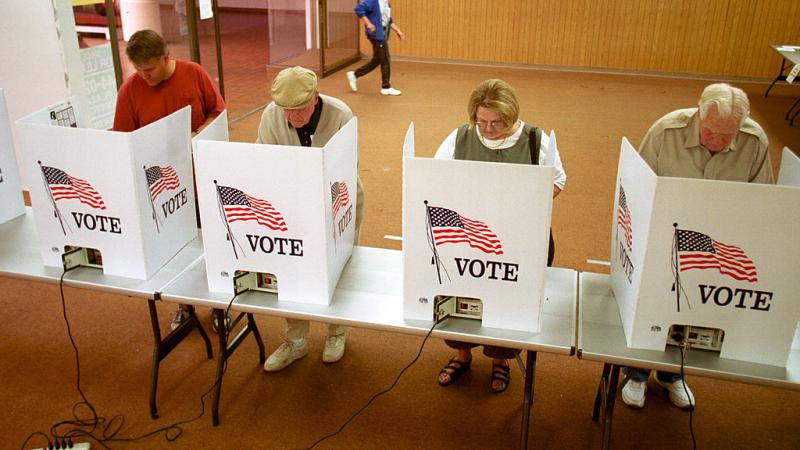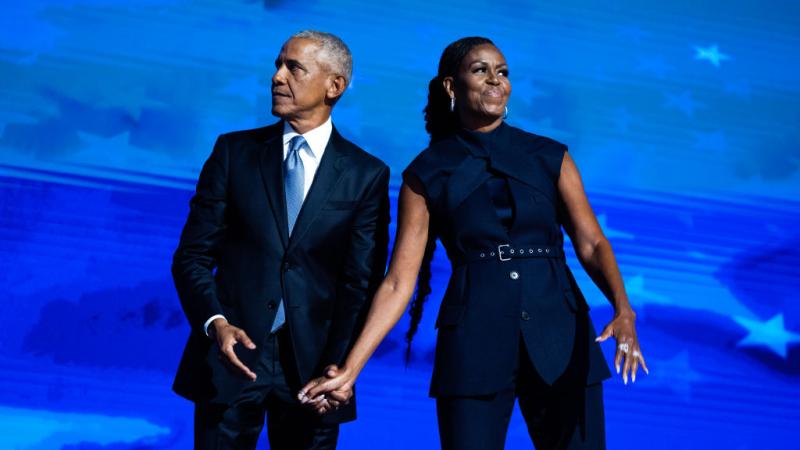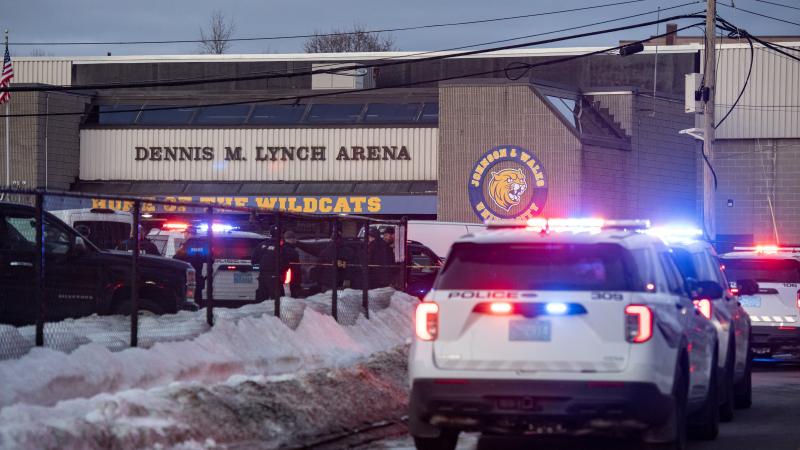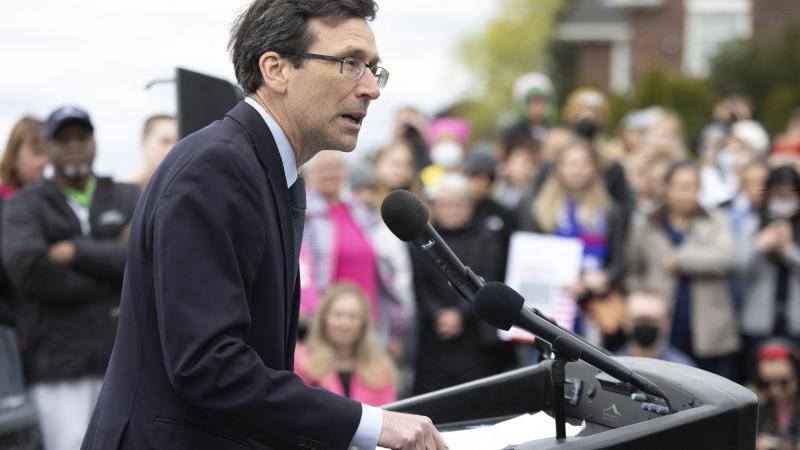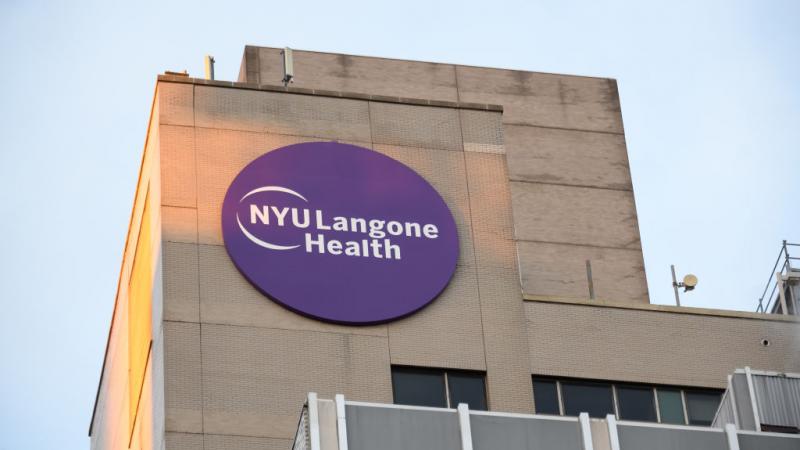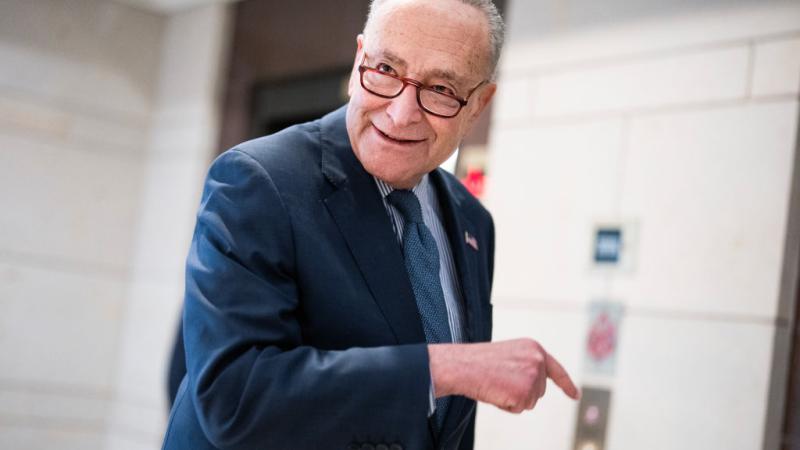GOP Senate hopefuls once dismissed as ‘fringe’ by elites are now in positions to win
Republican outsiders written off by their own party leadership and considered easy pickings by Democrats have defied the odds to make their races highly competitive, with some now tipped to win.
With less than a week to go until the midterm elections, several Senate races nationwide once thought to be comfortable Democrat victories are now neck and neck as outsider Republican candidates, many backed by Donald Trump, defy elite expectations after being dismissed by leaders of both political parties.
Democrats were so confident that some of these candidates labeled "far-right" or "fringe" by the media wouldn't win that Democrat campaigns and outside groups actually funneled money to them, thinking they'd be easier opponents in a general election than Republican primary hopefuls deemed more moderate or part of the GOP establishment.
Republican leaders similarly thought these outside disruptors were longshots, even poor-quality candidates — including Senate Minority Leader Mitch McConnell (Ky.).
"I think there's probably a greater likelihood the House flips than the Senate," McConnell said at a local Chamber of Commerce event in August. "Senate races are just different. Candidate quality has a lot to do with the outcome."
Less than three months later, polls suggest that some of these candidates are poised to win, and all five have at least made their races highly competitive. Here are five GOP Senate hopefuls once written off as "fringe" long shots who have already defied expectations even if they don't win:
Blake Masters
In Arizona, Republican Senate candidate Blake Masters is trailing Democrat incumbent Sen. Mark Kelly by just two points, according to the RealClearPolitics average of recent polling data.
But Masters could be gaining more support now after libertarian candidate Marc Victor, who's been polling at about 1%-6% support, dropped out of the race on Tuesday and endorsed Masters.
"Marc Victor joins a growing list of Arizonans from across the political spectrum who are fed up with open borders, big government corruption, and rising crime," Masters said in a statement. "We are building a broad coalition to defeat the worst senator in America."
Donald Trump endorsed Masters, a venture capitalist, back in June. The endorsement helped propel Masters to victory in the GOP primary. In September, however, a super PAC aligned with McConnell canceled nearly $10 million it had reserved for television ads in Arizona, pulling out of the Senate race in a battleground state where Masters was trailing. Other GOP groups had similarly backed out, opting to reallocate their resources elsewhere.
Weeks later, the Republican Senate campaign committee reversed course and invested in Arizona again. In the past few days, Masters has enjoyed a last-minute flood of money from GOP-aligned groups as he closes the gap with Kelly in the polls.
Don Bolduc
In New Hampshire, Republican Senate nominee Don Bolduc was expected to do so poorly in a general election that Democrats spent money to hurt his main GOP primary rival in hopes of paving the way for Bolduc's victory.
Indeed, Senate Majority PAC, a group aligned with Democrat Senate Majority Leader Chuck Schumer (N.Y.), spent $3.2 million on ads that effectively enhanced the candidacy of Bolduc, a retired Army brigadier general, by portraying his more moderate rival as beholden to the party establishment.
According to the media, Bolduc's victory gave Democrats "the race they wanted."
But Trump-backed Bolduc has made up significant ground since September, and today trails Democrat incumbent Sen. Maggie Hassan by just two points, according to the RealClearPolitics average. Moreover, in the respected politics site's adjusted average, which corrects for underpolling of Republicans in recent cycle, Bolduc now leads Hassan by 1.5 points, leading RealClear to project the seat as a Republican pick-up on Nov. 8, while continuing to list the race as a "toss-up" (reclassified from leaning Democrat).
Now the GOP and GOP-aligned groups are pouring money into New Hampshire after the Republican Senate campaign arm pulled funding just a few weeks ago to redirect it to other states.
Herschel Walker
In Georgia, Republican Senate candidate Herschel Walker sailed to the GOP nomination earlier this year with the endorsement of Trump, but trailed Democrat incumbent Sen. Raphael Warnock in the polls for much of the summer.
The polls then tightened as the seasons were changing, only to shift radically in Warnock's favor last month amid accusations that Walker pressured two women into having an abortion. Walker denied the allegations.
Today, after far outperforming expectations in his single debate with the eloquent Warnock — previously the pastor of Atlanta's storied Ebenezer Baptist Church — the Peach State football legend holds a narrow 2% lead, according to the RCP adjusted average, and election forecasters categorize the race as a toss-up.
That comes despite much of the GOP establishment expressing reservations about Walker's candidacy.
"If we're being intellectually honest, Herschel Walker won the primary because he scored a bunch of touchdowns back in the '80s and he was Donald Trump's friend," Georgia's Republican lieutenant governor, Geoff Duncan, said recently on CNN.
Walker has also been attacked by Barack Obama, who last week lambasted the Georgia Republican as a "celebrity that wants to be a politician." Walker responded that he's a "warrior for God" and would pray for Obama, who, he noted, lost Georgia in both the 2008 and 2012 presidential elections.
Walker has been a favorite target of the media, with some calling his candidacy "insulting," especially as he's made the race highly competitive in recent weeks.
J.D. Vance
In Ohio, Republican Senate nominee J.D. Vance is another Trump-backed outsider unpopular with the political establishment but making serious noise this election cycle. In fact, the Ohio Senate race is expected to go Republican, according to most election forecasters. Vance, a venture capitalist and author of the best-selling memoir "Hillbilly Elegy," is leading Democrat opponent Rep. Tim Ryan by 2 points in the RealClearPolitics polling average (a commanding 8 points in the adjusted average).
However, Ryan has been consistently fundraising more than Vance, whom the media has accused of being a "dangerous authoritarian" and whom the GOP establishment reportedly regards with "disgust."
Still, he's expected to win despite opposition from elites on both sides of the political aisle.
Tiffany Smiley
In Washington, Republican Senate nominee Tiffany Smiley has been facing an uphill battle by running in a deep-blue state, but she's faring far better than anyone expected against longtime Democrat incumbent Sen. Patty Murray.
Murray holds a 4-point lead, according to the RealClearPolitics average, and is expected to win, but Smiley, a political newcomer, has rapidly been closing what was a 9-point gap last month and a 14-point gap in September.
Perhaps that's why outside groups recently scrambled to pump money into the Washington race to avert what would be a devastating loss for Democrats.
"Washington State is really deep blue," GOP strategist Colin Reed told the Hill. "Sen. Murray's been around forever, for better or worse, so she's a known commodity, she's a tough out. If the red wave is reaching Washington State, then ... 2022 ... is poised to eclipse even 2010 in terms of the size of the Democratic wipeout."
While Smiley isn't endorsed by Trump, she's adopted a conservative platform and clashed with Murray over crime, abortion, and inflation, among other issues.

